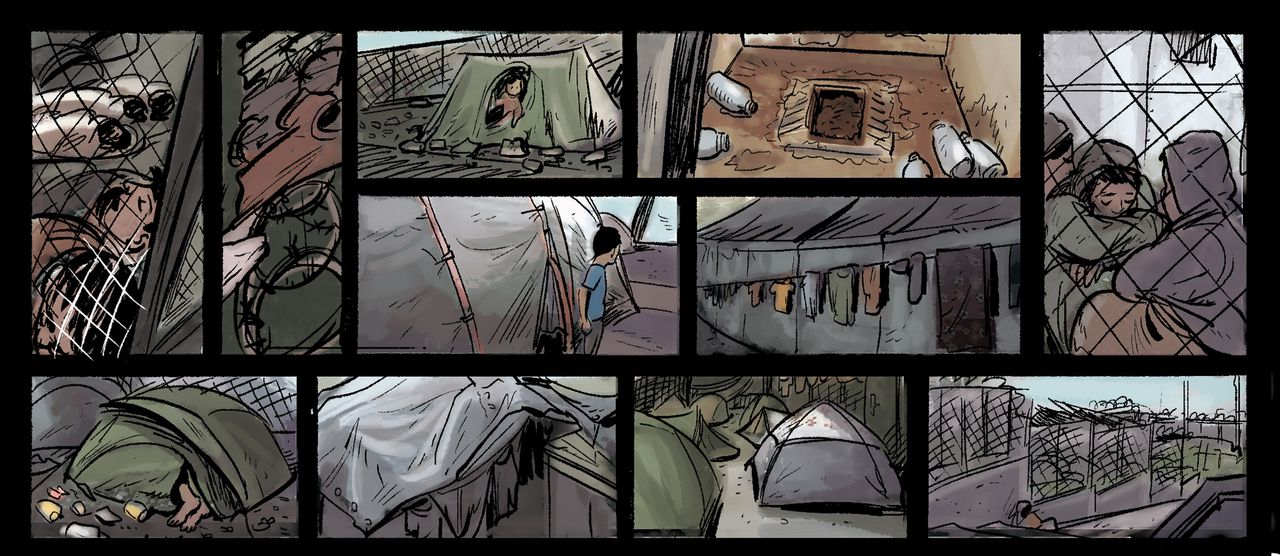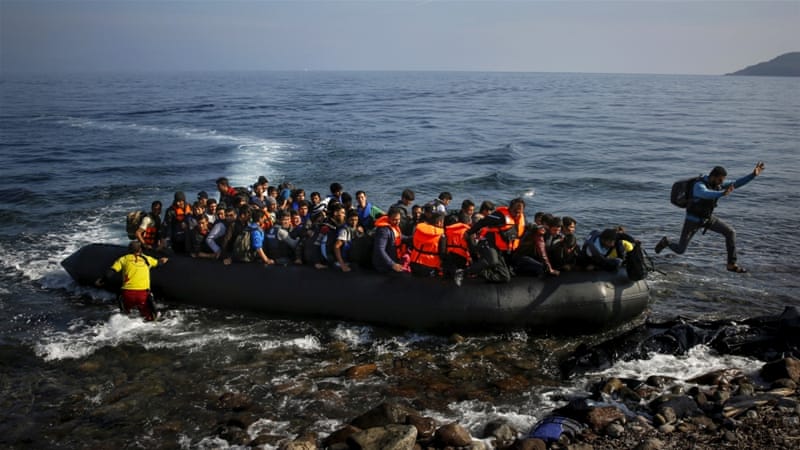Via Ekathimerini – More than 1.800 migrants arrived on the Greeks islands in January, according to the European Border and Coast Agency Frontex on Tuesday. The number of arrivals in January, mostly Syrian and Iraqi nationals, represented a 43 percent drop compared to the previous month.
Category Archives: Monitoring the EU-Turkey Deal
In the following months, we will extend our focus further to Europe by reporting on the EU-Turkey Deal and its consequences for migrants in Greece. A cooperation with activists on Lesvos allows HarekAct to expand its monitoring to the Aegean islands, focusing in particular the situation refugees and migrants stranded there are facing due to the EU-Turkey Statement, deportations back to Turkey and legal aspects.
Articles under this section will be tagged with #MonitoringEUTurkey
Turkey’s quest for EU visa waiver more likely to cause strife than progress
Via Al-Monitor – “Erdogan seems to realize that the political and economic price of breaking up with the EU is growing bigger. He has taken up the issue of EU membership anew, including during recent trips to France and Italy, amid growing talk of normalizing ties with the EU. On Feb. 7, Turkey submitted documents to the European Commission, saying it had fulfilled the outstanding criteria for the visa waiver. “The ball is now in the EU’s court,” Foreign Minister Mevlut Cavusoglu said.” Continue reading Turkey’s quest for EU visa waiver more likely to cause strife than progress
Investigation: Coercive ‘voluntary’ deportations leave refugees trapped in jail
The New Arab published a story on February 2nd on IOM ‘voluntary return programme’: “A scheme to repatriate refugees whose asylum bids have been rejected amounts to bullying and bribing desperate people to return to desperate situations, reports Matt Broomfield.” Valeria Hänsel also wrote on that same issue for HarekAct two weeks back.
Via The New Arab – A “voluntary” returns programme being heavily marketed to refugees is leaving them stranded in inhumane conditions in Greek and Turkish jails for months at a time, and facing imprisonment and torture once they return to their home countries – if they are ever able to get there at all.
For many refugees arriving in Greece and Turkey, whose claims for asylum are rejected, the International Organisation for Migration‘s Assisted Voluntary Return and Reintegration (AVRR) programme is effectively the only alternative to brutal jail systems. They are forced to give up their right to appeal their asylum decision in order to escape six or 12 months of confinement by accepting “voluntary” return. Continue reading Investigation: Coercive ‘voluntary’ deportations leave refugees trapped in jail
January 2018 Report on Rights Violations and Resistance in Lesvos
The Legal Center Lesvos regularly publishes report on the current situation for migrants on Lesvos. Here is their latest report on January 2018:
VIOLATIONS OF RIGHTS EXPOSED AT EUROPE’S BORDERS
At the close of 2017 in the period since our last report, the inhumane treatment of migrants in Lesvos continues to be widely reported on and denounced by refugees and migrants, solidarity activists, the media, and human rights organizations. In response to this pressure, in November and December roughly 3000 asylum seekers were transferred from Lesvos to mainland Greece and Crete. However during the same time period approximately the same number of individuals arrived to Lesvos from Turkey. Continue reading January 2018 Report on Rights Violations and Resistance in Lesvos
Concerns grow over conditions at migrant camps
Via Ekathimerini – Concerns are rising about conditions at reception centers for migrants on the islands of the eastern Aegean amid delays in much-needed infrastructure upgrades and increasingly cramped conditions, with reports of a spike in cases of mental health problems.
Last summer, authorities completed a feasibility study for an upgrade of the drainage and sewerage systems at Moria, the main reception center on Lesvos. But the plan appears to have become mired in bureaucracy. Originally designed to house 1,000 migrants, the camp at Moria is currently hosting nearly seven times that number.
Continue reading Concerns grow over conditions at migrant camps
The Myth of Voluntary Deportations – “Assisted Voluntary Return and Reintegration” from Greece
The number of people who agree to “voluntary” return from Greece to their country of origin with the programme of “Assisted Voluntary Return and Reintegration” of the “International Organization for Migration” (IOM) is significantly higher than the number of deportations to Turkey since the EU-Turkey statement.
What happens to migrants who sign up for the IOM return programme during the process and after the return to their home countries? Why do asylum seekers agree to leave Europe again?
The observation of several cases reveals that many migrants face detention and serious physical and mental harm during and after their participation in the programme of “Assisted Voluntary Return and Reintegration”.

Rare look at life inside Lesbos’ Moria refugee camp
Via AlJazeera – Images capture living conditions the Greek island’s largest camp, home to thousands of refugees and migrants
‘Musaferat’ on the last month on the prison island Lesvos
Musaferat – a collective active on Lesvos against the deportation practise – published an insightful summary of the events during the last month on Lesvos. From the unbearable living conditions in Moria, iltreatment of minor refugees, deportations and ‘voluntary returns’ and policy violence against protests.

Continue reading ‘Musaferat’ on the last month on the prison island Lesvos
Letters on EU-Turkey Deal revealed by Statewatch
Statewatch published letters about the EU-Turkey Deal that had been exchanged between the European Commission, the Turkish and the Greek government between April and July 2016!
EU-TURKEY DODGY DEAL: Letters between the Commission and the Turkish and Greek governments April-July 2016 (pdf)https://t.co/mJ5vE8P4bP
— Statewatch (@StatewatchEU) January 8, 2018
Refugees in Greece reflect on another year of waiting
Via Aljazeera – Closed borders, racism, xenophobic attacks, rejected asylum applications, poverty and lengthy waits. These experiences are what many refugees and migrants in Greece say defined 2017 for them. More than 60,000 refugees and migrants are trapped in Greece due to sealed borders across the so-called Balkan route and the March 2016 deal between Turkey and the European Union, which was sculpted to stem the flow of displaced people to Europe.  Continue reading Refugees in Greece reflect on another year of waiting
Continue reading Refugees in Greece reflect on another year of waiting
